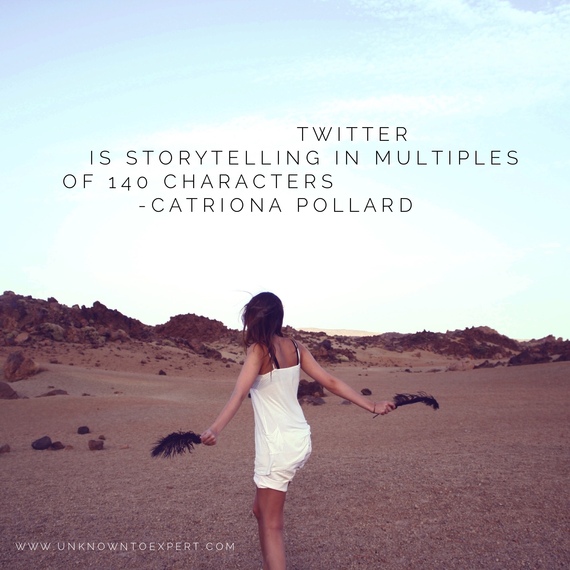I vividly remember my friend saying, "You should join Twitter", and my response was, "No one wants to know what I ate for lunch". Yes, I really did say that.
Clearly that was many years ago, and I have since realised that Twitter can be an extraordinarily powerful platform, particularly if you want to position yourself as an influencer and expert.
This is what I've learnt about using Twitter since then:
Have a strategy
Figure out who your audience is, what kind of information they are interested in. Think about the type content you want share, your tone and the type of audience you want to connect with and influence.
Real-time autobiographies
Each Tweet may only be 140 characters long but your Twitter feed is a live, real-time autobiography. Personality on Twitter really counts and simply trying to sell or promote doesn't work effectively.
Repeat your tweet
It is important to schedule a tweet more than once. Because people dip in and out of Twitter, they can very easily miss your tweet. So if you have something important to share, schedule it multiple times.
Learn to listen
There are two sides to communication and the most important part is listening. Interact with your followers, follow them back and respond to their comments.
Interact with influencers
Search out others in the same, or similar, fields and follow and interact with them. Comment on relevant issues, stories or new topics. This approach helps to place you as a leader or expert in your own field and it can even create some surprising and possibly lucrative partnership opportunities.
Connect with media
Many journalists use Twitter and the platform offers a great way to connect and engage with them. You can do this by following them, commenting on and sharing their stories.
Manage your reputation
By monitoring your mentions on Twitter you can also deal with any negative issues relating to your brand. Customer complaints on Twitter can be damaging, but monitoring for these (and having a strong presence on Twitter) allows you to respond quickly.
Play
I play around with my Twitter (and all social media platforms). I'll try something; if it doesn't work then I'll try something else. That's the beauty of social media; it gives you the opportunity to constantly test approaches.
Twitter can be an incredibly effective tool for positioning yourself as a thought leader and industry expert. Creating that position as an expert requires time and patience but if you plan ahead you will reap the rewards.
About the author
Catriona Pollard is the author of From Unknown To Expert, a step by step framework designed to help entrepreneurs develop effective PR and social media strategies to become recognised as influencers in their field. www.unknowntoexpert.com
Catriona is also the director of CP Communications, which merges traditional PR tactics with cutting-edge social media strategies that engage consumers as well as business. www.cpcommunications.com.au
Follow Catriona:
Twitter: @catrionapollard
Facebook: www.facebook.com/catrionapollard
Blogs: www.catrionapollard.com | www.unknowntoexpert.com/blog

